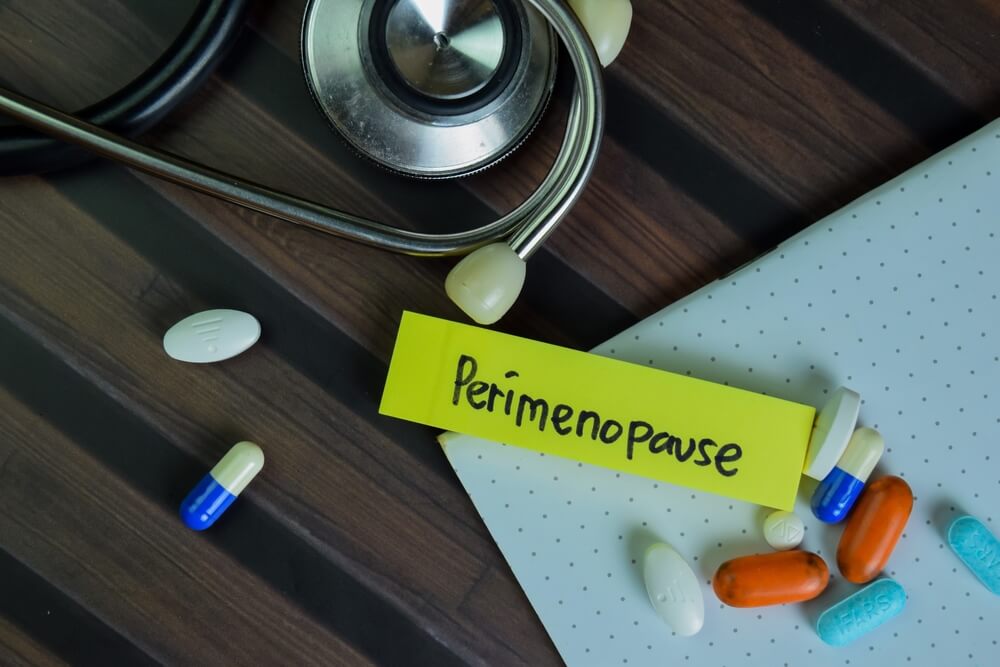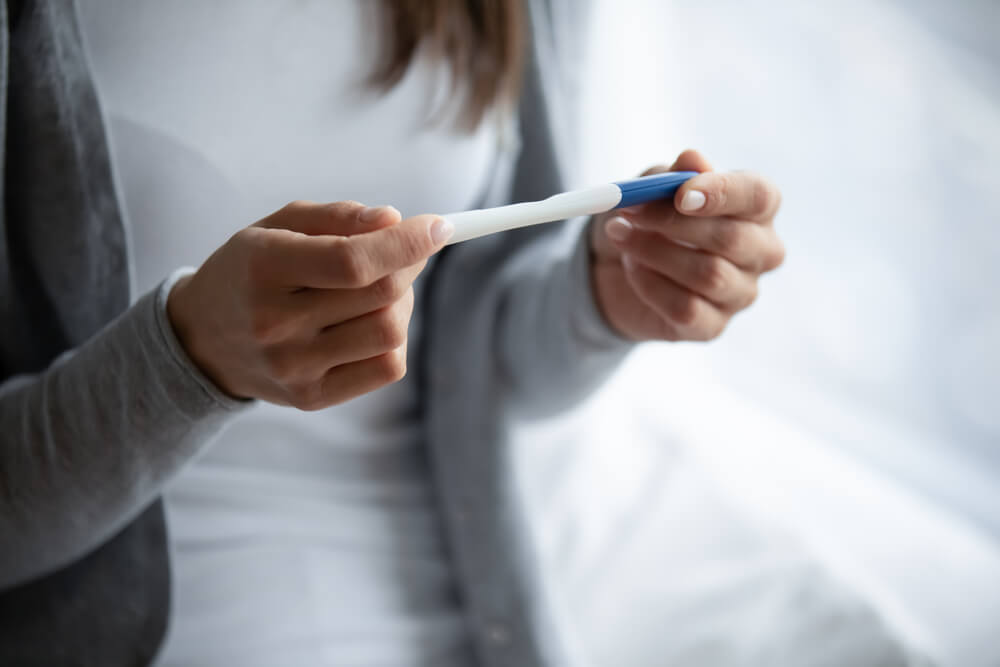Are menopause and pregnancy possible, or is it just a myth? Can you conceive a child even if you are experiencing typical menopause symptoms such as irregular periods and hot flashes? If you are looking for answers to these questions, you are in the right place. You will learn about menopause and pregnancy, how the two are linked, what menopause refers to, the difference between perimenopause and menopause, and more. Finding the answers to these questions is crucial for family planning and making important decisions concerning birth control.
With that in mind, if you have any further questions and concerns, consider Menopause Care and Treatment in South Miami, Florida. Our team of experts will help with any dilemmas or problems you may have for better reproductive health and elevated life quality.
If all of this sounds good, keep on reading.
Perimenopause vs. Menopause
Before finding the answers to your questions on pregnancy in menopause, it is essential to understand what perimenopause and menopause refer to. Moreover, grasping the difference between the two will help make the dilemma of whether pregnancy in menopause is even possible.
Although the term “menopause” is typically used to describe a time in a woman’s life when she is experiencing symptoms such as irregular periods, hot flashes, insomnia, and similar, there is much more than that. In fact, menopause happens gradually.
When a woman is in her reproductive years, her body produces progesterone, estrogen, follicle-stimulating hormone, and luteinizing hormone. When she is in the middle of her monthly cycle, during ovulation, estrogen, luteinizing hormone, and follicle-stimulating hormone work together to prompt the ovaries to release an egg. When the egg becomes fertilized, the luteinizing hormone stimulates progesterone production to keep the pregnancy. A woman will not experience ovulation if her hormone levels are below the normal range. Now, let’s discuss menopause and pregnancy and what the term perimenopause describes.
What is Perimenopause?

Every woman experiences perimenopause, which is the “change of life” or a time of transition. The ovaries of women in this life stage begin to produce less progesterone and estrogen. The follicle-stimulating hormone and the luteinizing hormone levels start to rise as the ovaries become less responsive.
As the hormones in the body decrease, the woman will begin to notice signs and symptoms such as night sweats and hot flashes. Moreover, women experiencing perimenopause will get irregular periods that vary in frequency and length. Also, in some months, the ovaries may release an egg. However, this is not always the case.
Even though fertility levels begin to decline, women in perimenopause can still get pregnant. Generally, this is where some people get confused about menopause pregnancy.
Perimenopause and menopause are different, and women in the first stage (perimenopause) can still get pregnant. If you do not want a pregnancy during perimenopause, you must use birth control. Overall, this phase may last for a couple of years.
What is Menopause?
During perimenopause, a woman’s menstrual cycles may seem as if they have completely stopped, but they can come back. This can happen repeatedly, fooling you into believing that you have entered menopause. This is why many women ask the question, “can you get pregnant in menopause?”. The answer is more complex than a simple yes or no.
In reality, if a whole year has passed since your last menstrual cycle, you are in menopause. In most cases, menopause happens between the ages of 40 and 55. The average age of a woman in menopause is 51.
Once a woman has reached menopause, her FSH and LH levels stay high, and her progesterone and estrogen levels are low. Women in this life period are not ovulating anymore, and they cannot get pregnant. So, can you get pregnant in menopause? No, you can’t.
What is Postmenopause?
Finally, postmenopause refers to the time of a woman’s life when birth control is no longer needed. Once the woman is postmenopausal, her hormone levels will not be in the suitable range for pregnancy and ovulation.
If you still have a dilemma or you are looking for expert evaluation and treatment, check out Obstetrics and Gynecology in South Miami, Florida.
Menopause and Pregnancy: Is it Possible?
All in all, menopause pregnancy is not possible in the traditional sense. After menopause, women may carry a baby to term via IVF and hormone therapies. However, these are complex methods that often involve risks. Women who are considering IVF should get professional fertility counseling and medical monitoring.
Menopause and In Vitro Fertilization
If you are in menopause and you want to get pregnant, there is still hope. In vitro fertilization or IVF after menopause is possible. Although postmenopausal eggs are non-viable, you can still reap the benefits of IVF. For instance, women can use eggs frozen previously in life or utilize frozen or fresh eggs from donors. If you opt for this approach, you will also require hormone therapy to prepare your body adequately for implantation. According to findings, women who are postmenopausal are more prone to risks and complications than premenopausal women. Depending on the woman’s overall health, in vitro fertilization could not be a possibility. We recommend consulting with a reliable fertility expert with years of experience and success with postmenopausal patients.
Can You Reverse Menopause?
No, menopause cannot be reversed. However, this may likely change in the future. Currently, researchers are looking into ways how to reverse menopause. For instance, one study that analyzed postmenopausal women found that 11 of the 27 treated with platelet-rich plasma (or PRP) regained their periods within three months. Moreover, the experts could retrieve the mature eggs from two patients. In vitro fertilization was successful in one patient. On the downside, more research is required on this topic to determine.
FAQ
Can You Get Pregnant in Menopause?
No, women in menopause cannot get pregnant. After menopause, you do not produce eggs, and you can’t get pregnant in a natural way. However, you might still get pregnant with the help of fresh or frozen donor eggs, or your previously frozen eggs.
What Happens if I Experience Pregnancy in Menopause?
As mentioned before, women in menopause can’t get pregnant. Often, women in perimenopause believe they have entered menopause. In perimenopause, women can still conceive a baby.
What Are Some of the Risks Associated With Pregnancies Later in Life?

Health risks and complications in pregnancy tend to increase as we get older. When a woman is 35 or older, the chances of health problems increase when compared to younger patients. Some of the health risks associated with pregnancies after 35 include:
- High blood pressure: Due to this, you may require medication and monitoring to avoid further complications.
- Gestational diabetes: This condition can cause other health problems, both for the baby and the mother.
- Multiple pregnancies: You may have multiple pregnancies, especially if you opt for in vitro fertilization. As a result, multiple pregnancies may lead to low birth weight, early birth, and delivery difficulties.
- Placenta previa: Patients may need medications, bed rest, and a cesarean “C-section” delivery.
- Low birth weight.
- Stillbirth or miscarriage.
The older the woman, the higher risk of pregnancy and delivery complications.
Reach Out to Us Today
Menopause can be a confusing and scary time in a woman’s life. Your body is going through multiple significant changes, and you are experiencing symptoms you have never felt before. Luckily, we are here to guide you through this life stage. Give us a call today to get started.


